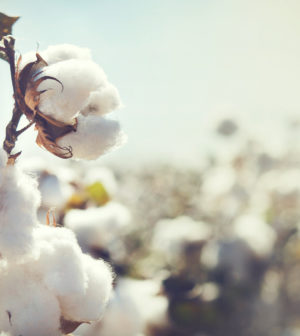- Can Your Kids Sue You for Putting Baby Photos on Facebook?
- Woman Sues Starbucks for $5M Over Too Much Ice in Its Drinks
- Lyft Settlement rejected by Judge Chhabria
- RackSpace Hosting - Class Action Investigation
- Nexus 5 WiFi Problem Investigation
- How to Lemon a Car
- Ashley Madison Hack Leads to a $578 Million Class Action Lawsuit
- Touch Of Modern Being Sued for SPAM
- Do You Trust Doctors More Than Lawyers? Here’s Why You Shouldn’t
- Uber’s $250,000 Campaign Contribution to Eric Garcetti Might Be Holding The Mayor Back
Popular Retailers And Promotion Of Sustainable Cotton

According to a new report by Rank a Brand, which examined 37 companies based on their cotton policy, according to publicly available information, popular companies are doing a poor job of ensuring the cotton used in their supply chains is sustainably sourced. Each was then assigned a score from 0 to 19.5. The higher the score, the better the company is at promoting cotton sustainability. Only a few of the examined companies got a 3 or higher.
“Sourcing more sustainable cotton has never been easier so there is no excuse for companies not to offer more responsible products to customers,” director of market transformation with the World Wide Fund for Nature, Richard Holland stated in a release.
If the retail industry were a high school, only a few would have passed the test.
“Companies are not particularly feeling the pressure that they should be doing something,” Holland said. “But now it’s possible to source more sustainable cotton, and the next five years will be critical in making enormous change.”
A+
IKEA, the Scandinavian chain selling ready-to-assemble furniture is leading the chart with a score of 12, despite the fact that IKEA’s most commonly used material is wood. Obviously cotton is used for furniture seating, towels and bedding. H&M, Hennes & Mauritz , the Swedish multinational retail-clothing company, scored a 9, Adidas (7.75), Nike (6.75) and the British retailer Marks & Spencer (5.5). The others scored extremely low. For example Associated British Foods (2), which owns the Irish fast-fashion chain Primark; Carrefour, a French supermarket chain (1.75); Macy’s (1.25) and Walmart (1). H&M is quite high on this list. But before it can call itself an eco-friendly company it still has some improvements to make in their manufacturing process.
“The sourcing of raw materials is only one component of sustainability,” Holland stated in an interview.
D
The companies that scored extremely low on the report’s list include Associated British Foods (2), which owns the Irish fast-fashion chain Primark; Carrefour, a French supermarket chain (1.75); Macy’s (1.25) and Walmart (1).
F
Among the companies that failed the test are Target, Gap and Foot Locker.
“Every large cotton user needs to contribute to sustainability,” says Isabelle Roger, who maintains the global cotton program at Solidaridad, told in an interview to Huffington Post. “Cotton is a key material, and companies need to work toward the security of its supply in the future.”
The aim of publishing this research was to call for more responsible activity in the retail industry. If the largest consumers of cotton don’t step up their game, the consequences can be disastrous.
Consumer Law Magazine is aimed to raise awareness among consumers and help you through the legal process. Stay tuned for more information and follow us on Twitter, Facebook and Instagram.






You must be logged in to post a comment Login